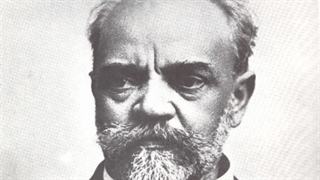ERSO Brings Out the Czech in All of Us

“From the New World.” Smetana, Martinu and Dvorak at Estonia Concert Hall on October 14. Estonian National Symphony Orchestra (ERSO) conducted by Daniel Raiskin; Heli Ernits (oboe).
What’s not to like about the Czechs? A nation known for the beauty of its women, fantastic cheap beer, and delicious kielbasa? A rhetorical question worth pondering. The Estonian National Symphony Orchestra on Friday evening showed us even more reasons to appreciate our friends from central Europe.
As a little nation buffeted around throughout its history by big rough neighbors, the Czechs, like the Estonians, have had to struggle for their culture. Bedrich Smetana’s symphonic poem “Moldau” (“Vltava”) named for the river that meanders through Prague, gets to the heart of the matter of the Czech national awakening, a movement mirrored in many countries in 19th century Europe, which espoused the primacy and necessity of native culture and vernacular language in literature. Smetana’s work, instantly recognizable to fans of symphonic music, displays all of the power and emotion of that struggle for national and cultural dignity. It is a deeply felt piece of music and was performed superbly by ERSO.
The featured soloist for the evening was oboist Heli Ernits who played Bohuslav Martinu’s Oboe Concerto. This is a demanding piece for the soloist. Ernits poured every ounce of musical energy into this piece and it came out beautifully. The clear bright tones of the oboe belied the contorted Louis Armstrong-esque expression playing the wind instrument had on Ernits’ normally pleasant features. Her effort left concert-goers enchanted.
After intermission came the evening’s big finale, Antonin Dvorak’s Symphony No 9 in E Minor Op 95, the “New World Symphony.” The No 9 is Dvorak’s most famous and oft played symphony. It was composed when he was visiting America and was commissioned by the New York Philharmonic, premiering in 1893. Dvorak stated that the music was inspired and even borrowed from Native American and African American musical forms, especially the pentatonic pattern. Dvorak saw similarities in the music of these two groups. The title “New World” reflects this inspiration.
In truth, this influence is hard to detect in the No 9. Pastoral passages tinged with nostalgia are in evidence, but as has been remarked, they reflect European folk music culture. In any case the No 9, like Smetana’s work, displays Czech art coming into its own on the world stage. Dvorak was also very much a part of the Czech national cultural awakening of the 19th century, despite his international and cosmopolitan character.
The rousing Dvorak gave guest conductor Daniel Raiskin a chance to have some fun. A native of St. Petersburg, Raiskin is a renowned violist and has been principal conductor of the Staatsorchester Rheinische Philharmonie in Koblenz, Germany since 2005. The No 9, a long piece in four movements, had Raiskin reveling in the emotional depth of Dvorak’s famed work, bounding around with his baton like a kid playing Guitar Hero in his living room. ERSO, always up to the challenge, responded in kind. It was enough to make one pine for a walk through Wenceslas Square with a cold Krusovice.
http://news.err.ee/Culture/fc0868e6-0a88-428e-9c53-8cad0f2c8a38